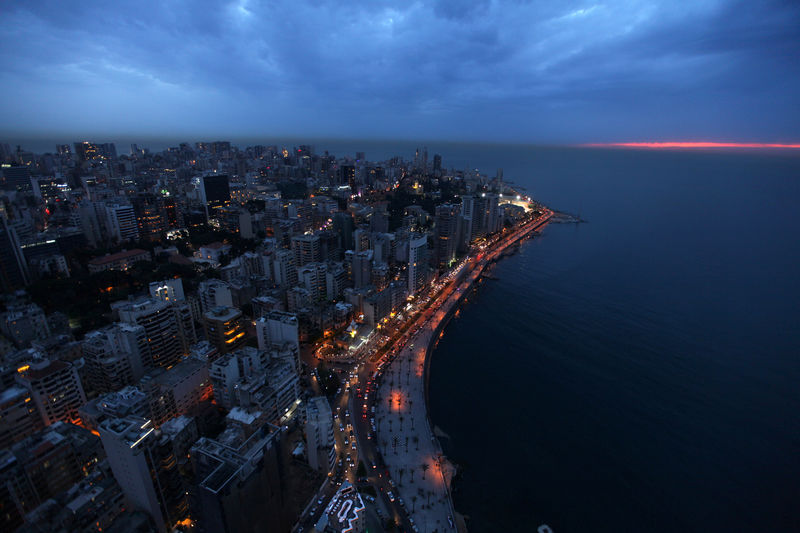
© Reuters.
TRIPOLI (Reuters) – Its arch is cracking and its vast pavilions are empty, but the Rachid Karami International Fair in the crumbling Lebanese port city of Tripoli now has hope of revival, having been added to the list United Nations World Heritage Sites in Danger.
Designed by Brazilian architect Oscar Niemeyer in 1962, the set of structures on the 70-hectare site is considered one of the key works of 20th-century modernism in the Middle East.
But the fairground park has been in slow decline due to repeated rounds of fighting over the past 60 years, poor maintenance and, most recently, Lebanon’s crippling three-year financial crisis.
“It was placed on the World Heritage List exceptionally, quickly and urgently, and on the endangered heritage list because it is in a critical situation,” said Joseph Kreidi, UNESCO’s national culture program officer in Beirut.
Its graceful arch is missing concrete in places, exposing the rebar below. Rainwater has accumulated in the closed entrances. One section is sealed off with a sign reading “Unsafe Building Entry.”
“Including it on the List of World Heritage in Danger is a call to all countries in the world, as if to say: this site needs care,” Kreidi said.
He said it was up to the Lebanese authorities to draw up a plan for the protection and rehabilitation of the site, but that UNESCO, the United Nations cultural agency, could help seek funding and provide technical expertise.
Lebanon has five other sites on the UNESCO World Heritage list, most of them ancient citadels and temples.
Niemeyer is recognized as one of the fathers of modern architecture and the site in Tripoli was an early foray into the Middle East.
Construction of the fairgrounds began in the 1960s, but was delayed when civil war broke out in Lebanon in 1975. Fighters used the site to stage operations and store weapons under its concrete dome.
Mira Minkara, a freelance tour guide to Tripoli and a member of the Tripoli chapter of the Oscar Niemeyer Foundation, has fond, but rare, memories of the fairgrounds as a child.
For the most part, it was off-limits to Tripoli residents for security reasons. But Minkara recalled his first visit during a pan-African culture and crafts festival.
She hopes the UNESCO recognition can bring new festivals, exhibitions and economic benefits to Tripoli, which was already one of the poorest cities in the Mediterranean before Lebanon’s financial crisis began.
Lebanon’s cultural heritage has been greatly affected in recent years. The 2020 Beirut port explosion smashed 19th-century houses in historic neighborhoods, and power outages caused by the financial crisis have cut supplies to the national museum.
“We hope that things will change a bit,” Minkara said. “It is time for this amusement park to come out of this long sleep, this near-death.”

